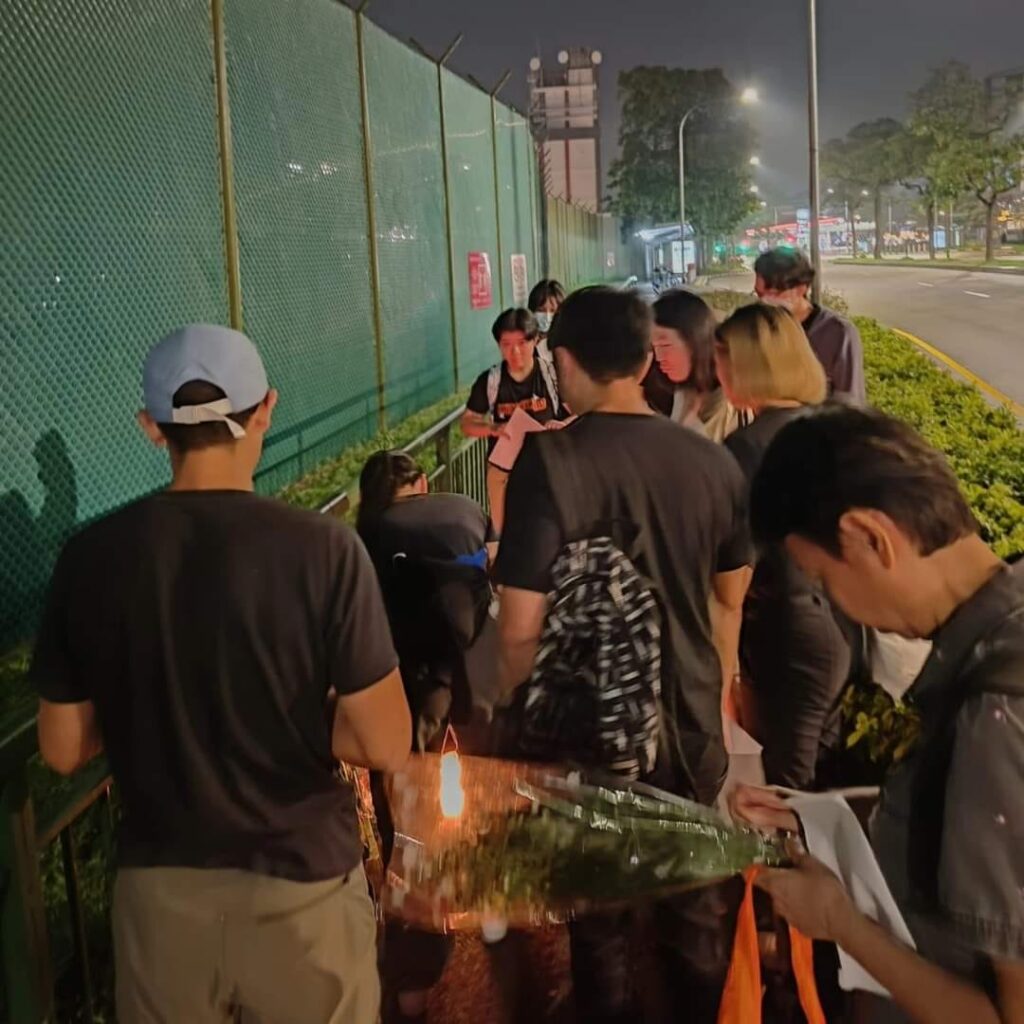by Teo Soh Lung
When Tharman Shanmugaratnam became the president of Singapore in September 2023, I told several young anti-death penalty activists that he may pardon some death row prisoners. They looked skeptical but did not voice any opinion. The young activists had all been working their guts out for death row prisoners and their families. But none of the cases they worked on succeeded in having their death sentences commuted to life through presidential clemencies.
In the entire history of independent Singapore (since 1965), only six death row prisoners were granted clemencies.
- President Benjamin Sheares – 2
- President Wee Kim Wee – 2
- President Devan Nair – 1
- President Ong Teng Cheong – 1.
President Ong also granted the petition to release one prisoner who had earlier had her death sentence commuted to life imprisonment to be released from prison owing to severe illness.
From 1999 till today, a period of 25 years, no death row prisoner had been granted clemency. This dark history started with President S R Nathan who served two terms from 1999 to 2011. After Nathan, Presidents Tony Tan and Halimah Yacob did not grant a single clemency. For my young friends, there was therefore no good reason to be hopeful.
So why was I so hopeful and activists completely skeptical?
It is no secret that Tharman has a social conscience. He once said that there was “no greater purpose in life than serving your own country”, adding that “we all have to feel responsible for Singapore”.
In 1987, the Internal Security Department had apparently suspected him to be involved in the activities of the 22 people who were accused of being Marxist conspirators intent on overthrowing the PAP government. The allegations were of course, completely false. While the 22 people were arrested and imprisoned without trial under the Internal Security Act, Tharman was not arrested. Instead, he was subjected to intensive interrogation by officers of the Internal Security Department for several days. In the end, he was let off. He did not lose his job with the Monetary Authority of Singapore. He continued to rise in his political career from ordinary member of parliament to Minister of Finance, Deputy Prime Minister and finally Senior Minister. When he was proposed to stand for election as president of Singapore in 2023, he vowed to be his “own man”. He told his audience at the Pasir Panjang Townhall meeting on 25 August 2023:
“Everyone in government, in the civil service and frankly everyone outside government knows that I’m my own man. I’m independent-minded, I’ve always sought to find a consensus with my colleagues on the direction of change and the policy changes required.”
You can read the report at https://tinyurl.com/2p87tsuz
President Tharman is a man with vast experience, not only of the government but also of the people on the ground. He was highly popular in his constituency when he was a member of parliament. His poll score at one general election was higher than that of PM Lee Hsien Loong.
President Tharman has full knowledge of how the cabinet works. He praised the workings of the cabinet in that townhall meeting and talked about his role in cabinet proclaiming:
“I’m not known as someone who just toes the line, or is a yes-man …”
So what happened to his claim of independence and ability to persuade his colleagues to agree with his views and take Singapore forward with regard to the death penalty? Did he ever raise the subject when he was a cabinet minister?
The death penalty concerns every one of us in Singapore and the world. The majority of countries in the world have abolished the death penalty. Why is Singapore retaining the death penalty and actively executing people. Why is Singapore such a strong advocate of the death penalty joining the ranks of China and Saudi Arabia? Does hanging drug mules eradicate the drug problem?
Tharman became president in September 2023. Under his presidency, he has already ordered the execution of at least nine death row prisoners who all belong to the ethnic minority group. Singapore’s population is made up of:
- Chinese 75.9%,
- Malays 15.4%,
- Indians 7.4%,
- and residents of other descent make up 1.6%.
I don’t claim to be knowledgeable about the composition of our prison population but I suspect that the majority are made up of the minority ethnic group. I wonder if Tharman as minister and deputy prime minister had ever raised the subject in cabinet.
I am aware that the president acts on the advice of the cabinet. But am I to believe that the president has absolutely no role in the decision? Could the president speak to the prime minister who works next door to his residence about clemency petitions? Could he raise the subject of clemencies when he meets ministers at his residence? Could he use his skill and influence as a former cabinet minister to persuade the main decision makers to grant clemencies? I am sure the past presidents who granted seven clemencies exercised their influence over some cabinet ministers.
If President Tharman had done nothing with regard to the death penalty while in office as minister, I am deeply disappointed. Now as president he has rejected nine clemency petitions in the short duration of 16 months of his presidency.
Last Friday, Masoud Rahimi, aged 34, was executed at dawn after being on death row for 14 years. He was arrested for a drug trafficking offence at the age of 20, shortly after he completed his national service. Apparently, he denied that he was involved in trafficking but the courts disbelieved him. The burden of proof on the accused is extremely heavy. I am told that he filed a last minute application to stay his execution claiming that he had finally found a witness who he was looking for since he was arrested. That witness was, unknown to him, already in prison. He also has a pending constitutional case scheduled for hearing in 2025. The court rejected his plea for stay of execution. The president too rejected his clemency petition, making him the 9th person to be executed under the hand of the President Tharman.
I understand that there are about 50 death row prisoners today. Will President Tharman execute all of them in the remaining four years of his presidency or will he try to influence the ministers to grant clemencies?


Leave a Reply